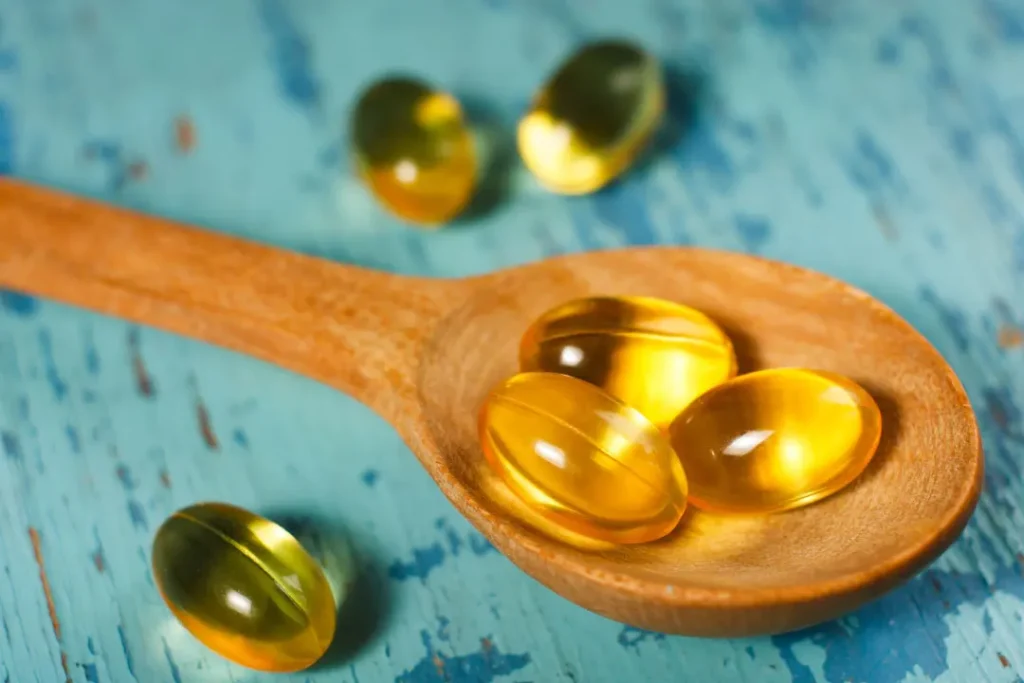Cod liver oil is a dietary supplement that has recently gained increased popularity as a substantial source of essential nutrients and health benefits. This article will go into the complex details behind this dietary supplement and examine its advantages, recommended dosage, side effects, and potential drug interactions.
You May Also Like:
Five Great Reasons to Try a Nootropic Mushroom Supplement
7 Super Smart Supplements To Boost Your Memory And Recall
Nature of Cod Liver Oil
As the name implies, codfish livers are used to make cod liver oil. Eicosapentaenoic acid (EPA) and docosahexaenoic acid (DHA), in particular, are abundant in the oil’s omega-3 fatty acids. Since our body cannot produce these fatty acids alone, it is necessary for us to include them in our diet. A variety of body processes, including the control of inflammation, and proper brain and heart function, depend on omega-3 fatty acids.
The fat-soluble vitamins A and D can be found in large quantities in cod liver oil. While vitamin D helps with the absorption and regulation of calcium and phosphate in our body, which are essential for good bone health, vitamin A is essential for our vision, immune system, and cell growth.
Health Benefits of Cod Liver Oil
The high content of omega-3 fatty acids and vitamins A and D in cod liver oil are principally responsible for its beneficial effects on our health.
There has been extensive research done on the potential health advantages of omega-3 fatty acids. These polyunsaturated fats have been linked to lowering our risk of heart disease, notably by reducing blood pressure, triglyceride levels, and the chance of dangerous blood clots forming. DHA, a major structural element of our brain and retina, is crucial for appropriate brain function and development.
Our immune system, skin health, and vision are all maintained by vitamin A. By encouraging calcium absorption, vitamin D aids in the development and maintenance of healthy bones and teeth. It aids our immune system as well.

Chemistry of Cod Liver Oil
Omega-3 fatty acids, particularly eicosapentaenoic acid (EPA) and docosahexaenoic acid (DHA), as well as vitamins A and D are the main components of cod liver oil.
Since EPA and DHA are polyunsaturated fatty acids, their carbon chains have several double bonds. These fatty acids are versatile due to their un saturation and distinctive structure, which enables them to interact with many biological components and provide positive effects.
Retinol, a highly bioactive molecule, is the main form of vitamin A found in cod liver oil. Cholecalciferol (vitamin D3), which is produced in our skin after exposure to sunlight and can also be found in some animal-based foods. This is the most common form of vitamin D.
Physiological Properties of Cod Liver Oil
It might be easier to understand the health advantages of cod liver oil ingredients by understanding its physiological processes:
- EPA and DHA: When we consume EPA and DHA, they are absorbed into our cell membranes, increasing their fluidity, which can have an impact on signaling pathways and receptor function. They serve as eicosanoids’ substrates, which are signaling molecules that control inflammatory reactions. The anti-inflammatory properties of omega-3 fatty acids are largely explained by the fact that, in contrast to eicosanoids generated from omega-6 fatty acids, those from EPA are less inflammatory.
- Brain Health: DHA is important for maintaining our brain health. It is a significant structural element of neuronal membranes that affects our membrane fluidity, signal transduction, and the production of neurotransmitters.
- Vitamin A: Vitamin A is a fat-soluble vitamin that has functions. It is crucial for our vision since it is a part of the pigment rhodopsin, which is responsible for vision. By promoting the development and distribution of T cells, a kind of white blood cell that fights infection, vitamin A also plays a critical role for our immune health.. Additionally, it promotes good skin health by preserving the development and differentiation of our mucous membranes and skin cells.
- Vitamin D: Vitamin D from cod liver oil is transformed into 25-hydroxyvitamin D in our liver, which is then transformed into calcitriol in our kidneys. In several organs, calcitriol interacts with the vitamin D receptor, which changes how our genes are expressed. Its major job is to encourage the intestinal absorption of calcium and to keep serum calcium and phosphate levels at a healthy level to support good bone mineralization. It influences our body’s immunological responses and has been linked to cardiovascular and neuromuscular health.

Optimal Dosage of Cod Liver Oil
Cod liver oil dosage is normally determined by the amount of omega-3 fatty acids, vitamin A, and D it contains. If you have, or have had heart disease, the American Heart Association suggests a daily dose of 1 gram of EPA and DHA, and between 250 and 500 mg for if you are in good health.
The National Institutes of Health recommend daily dose of 700–900 micrograms of vitamin A and 15-20 micrograms of vitamin D for adults. It is crucial that you pay attention to the product labeling and potentially seek guidance from your healthcare professional before using cod liver oil because the vitamin content of it can vary greatly depending on things like the fish species and its processing processes.
Side Effects of Cod Liver Oil
When taken properly, cod liver oil is generally safe for the majority of people. However, vitamin A and D toxicity can result from over-consumption. Dizziness, nausea, joint pain, and skin irritation are signs of vitamin A toxicity, whereas vitamin D toxicity can result in an inability to eat, nausea, and renal issues.
Additionally, if you are already taking blood-thinning drugs, the high omega-3 content may thin your blood and raise your risk of bleeding. Other side effects can include gastrointestinal pain and a fishy aftertaste.

Potential Substance Interactions with Cod Liver Oil
Various types of drugs can interact with cod liver oil. As we have mentioned before, omega-3 fatty acids’ blood-thinning qualities can enhance the effects of anticoagulant and anti-platelet medications, increasing your risk of excessive bleeding.
Cod liver oil may also impact your blood pressure. It can intensify the effects of anti-hypertensive medications, increasing your risk of dangerously low blood pressure. Cod liver oil should also be used cautiously alongside other sources of vitamin A due to the high vitamin A content to avoid toxicity.
Best Responsible Uses of Cod Liver Oil
Although cod liver oil has promising potential health advantages, it’s important to utilize it safely. It serves as a supplement and is not meant to replace a diversified diet.
To avoid impurities like heavy metals, make sure youuse a high-quality, pure product. Always abide by dosage recommendations and pay attention to the vitamin and omega-3 content. Before beginning a supplementation regimen, consult your healthcare provider if you’re on any medications, notably blood thinners or anti-hypertensives, or if you have a pre-existing or current medical condition.

Cod Liver Oil: Conclusion
Finally, cod liver oil is a good source of omega-3 fatty acids and fat-soluble vitamins, which help with your heart health, brain function, and bone strength. Its appropriate usage can supplement a healthy lifestyle, but you must be aware of its potential negative effects and interactions. Future studies may uncover more intricacies regarding this ancient supplement, shedding light on its role in enhancing our health and wellbeing.
References:
- Omega-3 Fatty Acids: Fact Sheet for Health Professionals. Retrieved from:https://ods.od.nih.gov/factsheets/Omega3FattyAcids-HealthProfessional/
- Vitamin A: Fact Sheet for Health Professionals. Retrieved from:https://ods.od.nih.gov/factsheets/VitaminA-HealthProfessional/
- The Role of Omega-3 Fatty Acids in Brain Health: An Update on the Evidence. Retrieved from:https://www.webmd.com/healthy-aging/omega-3-fatty-acids-fact-sheet#3
Important Note: The information contained in this article is for general informational purposes only, and should not be construed as health or medical advice, nor is it intended to diagnose, prevent, treat, or cure any disease or health condition. Before embarking on any diet, fitness regimen, or program of nutritional supplementation, it is advisable to consult your healthcare professional in order to determine its safety and probable efficacy in terms of your individual state of health.
Regarding Nutritional Supplements Or Other Non-Prescription Health Products: If any nutritional supplements or other non-prescription health products are mentioned in the foregoing article, any claims or statements made about them have not been evaluated by the U.S. Food and Drug Administration, and such nutritional supplements or other health products are not intended to diagnose, treat, cure, or prevent any disease.


